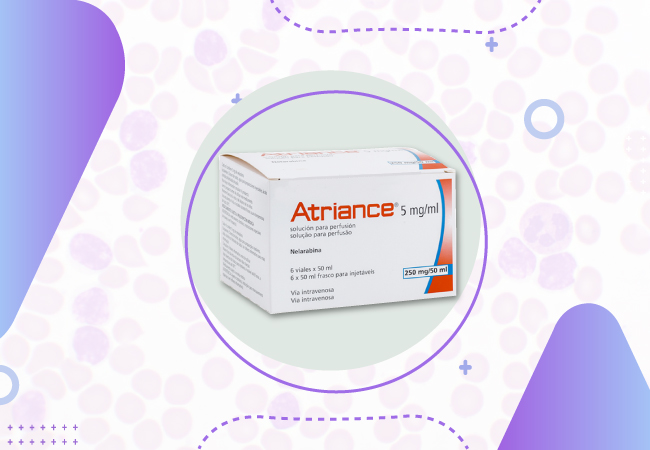Acute Lymphoblastic Leukemia (ALL) is a fast-progressing blood cancer that originates from immature white blood cells in the bone marrow. The term “acute” signifies its rapid development. While ALL is the most common type of leukemia in children, it remains relatively rare in adults. T-cell acute lymphoblastic leukemia (T-ALL), a subtype of ALL, specifically affects the T lymphocytes, a vital part of the immune system.
T-ALL is an aggressive form of leukemia that spreads quickly, but it typically does not form tumors like many other types of cancer. Instead, it can affect organs such as the liver, spleen, and lymph nodes. Understanding the symptoms, causes, diagnosis, and treatment options for T-ALL is crucial for timely intervention and successful management.
Causes and Risk Factors of ALL:
The exact cause of ALL, including T-ALL, remains largely unknown. However, research has identified several risk factors that may increase the likelihood of developing the disease, including:
- Exposure to high levels of radiation, often as a treatment for other cancers.
- Exposure to chemicals like benzene, found in certain industrial environments, and cigarette smoke.
- Infection with viruses such as the human T-cell leukemia virus-1 or Epstein-Barr virus (EBV).
- Genetic disorders, such as Down syndrome.
- Higher prevalence in males and individuals of Caucasian descent.
Symptoms of T-ALL:
Symptoms of T-ALL can be non-specific and may resemble other illnesses. Common symptoms include:
- Fatigue
- Fever
- Loss of appetite or unexplained weight loss
- Night sweats
- Stomach pain
- Small red spots under the skin (petechiae)
- These symptoms result from the overcrowding of healthy blood cells in the bone marrow by leukemia cells, which disrupts normal bodily functions.
Diagnosis of T-ALL:
When T-ALL is suspected, healthcare providers typically conduct a series of tests to confirm the diagnosis. These may include:
- Blood tests: To check for abnormal blood cell counts.
- Bone marrow tests: To examine the production of blood cells.
- Imaging tests: To assess the spread of the disease to other organs.
- Spinal tap: To check for the presence of leukemia in the cerebrospinal fluid.
Treatment of T-ALL:
Treatment for T-ALL typically follows two stages: induction therapy to achieve remission and post-remission therapy to prevent a relapse. Treatment options may include:
- Chemotherapy: A multi-drug regimen, often lasting for several years, to kill or slow the growth of cancer cells. Atriance (Nelarabine 250 mg) is one such chemotherapy drug, now available in India, and a crucial part of treatment.
- Targeted therapy: Drugs like Bosutinib and Dasatinib target specific molecules involved in the growth of leukemia cells, often with fewer side effects than traditional chemotherapy.
- Radiation therapy: Used to target cancer cells that have spread to the brain or bones, or in preparation for a stem cell transplant.
- Immunotherapy: Boosts the immune system’s ability to fight cancer cells, using drugs like Blinatumomab and Inotuzumab ozogamicin.
- Stem cell transplant: After high-dose chemotherapy or radiation, stem cells are infused to regenerate healthy blood cells, either from the patient or a donor.
Atriance Availability and Export from India:
Atriance (Nelarabine 250 mg), a pivotal chemotherapy drug for treating T-ALL, is now available in India. Indian Pharma Network (IPN) plays a key role in exporting Atriance to various countries across the world, including regions in Asia, Europe, Australia, and Africa, helping ensure that patients globally have access to this life-saving medication.
By facilitating Atriance’s export to countries like Brazil, UAE, Bangladesh, Sri Lanka, Sudan, Iraq, South Sudan, Belarus, Zimbabwe, Cuba, Somalia, Iran, North Korea, and South Africa, IPN ensures that patients who may not have local access to advanced treatments can receive effective care. With Atriance’s proven efficacy in managing T-ALL, this global outreach helps bridge the treatment gap in regions where modern cancer therapies are less accessible.
FAQs:
What is T-cell acute lymphoblastic leukemia (T-ALL)?
T-ALL is a fast-growing form of leukemia that affects T lymphocytes, a type of white blood cell. It primarily impacts the blood and bone marrow and can spread quickly to other organs.
What are the most common symptoms of T-ALL?
Common symptoms include fatigue, fever, weight loss, night sweats, and abdominal pain. These symptoms are caused by a deficiency in healthy blood cells due to the rapid growth of leukemia cells.
How is T-ALL diagnosed?
T-ALL is diagnosed through blood tests, bone marrow biopsies, and sometimes imaging or spinal taps. These tests help determine the extent of the disease and the best course of treatment.
What are the main treatment options for T-ALL?
Treatment typically involves chemotherapy, targeted therapy, radiation, immunotherapy, and possibly a stem cell transplant. Atriance, a chemotherapy drug, is commonly used in treating T-ALL.
How can I get access to Atriance for treatment?
Atriance is now available in India, and the Indian Pharma Network (IPN) can facilitate its export to certain countries including Brazil, UAE, Bangladesh, Sri Lanka, Sudan, Iraq, South Sudan, Belarus, Zimbabwe, Iran, Cuba, Somalia, North Korea, and South Africa. If you want to buy Atriance in regions where it is not readily available, contact IPN for assistance in obtaining this medication.
Conclusion:
T-cell acute lymphoblastic leukemia, though aggressive, can be managed effectively with timely diagnosis and appropriate treatment. With advancements in chemotherapy, such as Atriance, and support from global networks like the Indian Pharma Network, patients worldwide can access life-saving medications. Contact us today via Call/WhatsApp: +919310090915 or TOLL-FREE: 1800-889-1064 to inquire about the export of Atriance and other cancer treatments to your region.

